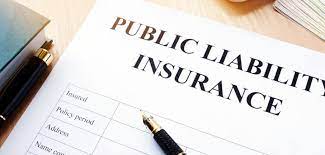Public liability insurance (PLI) protects your business against compensation claims and legal costs if you cause injury to a third party or damage to their property. In the UK, public liability insurance covers you on your premises and while working off-site. So whether it’s a trip and slip or a serious accident that could wreak havoc on your bank balance. They give you the extra peace of mind you need. So, in this article, we will cover, public liability insurance costs, quote, and other relevant frequently asked questions for UK businesses.
What is Public Liability Insurance?
Public liability insurance is not a legal requirement, but it is considered essential among business owners, and in some professions, you may find it impossible to trade without it. Public liability insurance can help to pay for several legal costs. Areas where a policy will help you include:
- Compensation claims: When a person encounters injury during the course of his/her duties, they may decide to sue. If the case went in their favor, you will be asked to compensate them financially. If the accident was caused by your business activities, you’ll be accountable regardless of whether it took place on your premises, theirs, or at a third-party location.
- Legal expenses: This helps cover the cost of any fees you might have to pay during a legal hearing. This includes the cost of getting a lawyer.
- Cost of repairs: If something has been damaged as a result of your business (for example, if you’re a decorator who spills paint somewhere on a customer’s property), public liability insurance covers the fee for repairing the damage.
- Medical fees: In the event of injury, reasonable medical expenses for rehabilitation and recovery would be considered.
Overview of Public Liability Insurance in the UK
In the UK, there are some damages or losses that public liability insurance covers and others that it doesn’t cover. Let’s see them below.
Insurance covers you on issues such as:
- Loss to someone else or their possessions
- Damage or loss as a result of a favor to a friend (up to €25,000)
- Damage or loss caused by a visitor (if your visitor does not have any insurance)
- Loss or damage caused by activities carried out by your personnel (for example your cleaner)
- Damage or loss caused by your pet
Insurance does not cover you on issues such as:
- Loss or damages caused by intent
- Damage or loss caused by business-related activities
- Damage to or loss of the possessions of another person living at the same address (such as a family member)
- Loss or damages caused by an unlicensed weapon
- Damage caused by a motor vehicle or boat
If someone files a lawsuit against your business for a reason covered by your policy, you file a claim with your insurance company. Your insurance company helps cover your legal costs and pay damages up to the limits of your policy. Hence, public liability is a type of business insurance. It covers the compensation costs. Also, legal fees you are required to pay if a member of the public is harmed, or their property is damaged, because of your business activities. Public liability insurance is there in case you find yourself at the end of a compensation claim.
Product liability insurance offers protection if a product that you manufacture, sell, install, repair, or alter causes injury or illness to a customer or damages their property. A good example of that is when someone is selling electronic gadgets, and for some reason, the gadgets injure the buyer, public liability insurance covers you.
This cover is particularly important if you:
- Interact with customers, clients, and members of the public face-to-face
- Carry out work on client sites, e.g. a construction site, or your client’s home or office
- Work at events, fairs, and markets
- Have visitors to your premises
Public liability insurance cost
One of the biggest factors influencing the cost of Public Liability insurance is the type of industry your business operates in and the nature of your occupation. In fact, the higher the number of employees you have means more people in your organization could potentially cause an accident. Such as bodily injury to a customer or member of the public or damage to a third party’s property. For example, you own a real estate agency that has grown from having just 3 employees to 10 employees. You now have 10 agents visiting multiple properties each day, resulting in a higher chance that something could go wrong.
Another example similar to that is cafes and restaurants. They present a higher risk due to a combination of dozens of people passing through the doors each day. And the number of things that could potentially go wrong which could lead to a public liability claim being made. For instance, food poisoning; slips and falls on wet floors; and scalds caused by hot liquids. The number of employees and the amount of revenue your business turns over can have an impact on the cost of your Public Liability policy.
Types of Business and Public Liability Insurance
The cost of a public liability policy depends on the size and type of your business, and how risky the work is.
The type of business you run, and how much risk you pose to the general public make a difference. You’ll usually pay more if you have a manual-labor business, rather than a clerical one, or if you’ve made any previous claims.
It is important to note that each insurance company assesses risk in different ways. An insurer may consider something high-risk, while the next insurer may think otherwise. This is partly due to the number of claims each insurance company has received for each given occupation.
What Does Public Liability Insurance Cover?
The expense of injuries and damages sustained by third parties that are attributable to your company is covered by your public liability insurance policy. This covers occurrences that take place at your place of business as well as other sites connected to your line of work, such as the residence of a client.
Because this is covered under a comprehensive general liability insurance policy, in the event that a customer or member of the public were to sustain an injury while on your property, your public liability insurance policy would cover the cost of any bodily injuries, property damage, and legal costs for any related lawsuits, up to the limits of your policy, after you had satisfied your deductible. This would be the case, however, only if the lawsuit was related to your property.
Why Do You Need Public Liability Insurance?
The protection offered by public liability insurance shields you from potentially ruinous legal claims and enables the insurance company to make compensation payments on your behalf. When you have protection in place, it is less likely that claims will cut into the profitability of your company.
Is Public Liability Insurance the Same as General Liability?
There is a sort of commercial insurance known as public liability insurance that is essentially an earlier version of another type of liability insurance known as general liability insurance. In the event that a member of the general public, such as a customer, a member of the delivery staff, or a visitor files a claim for damages or injuries against your small business, having public liability insurance can assist in paying those claims
Public Liability Insurance Quote
Public liability insurance quote is the company’s estimate of what they would charge for issuing a new policy. Gathering insurance quotes from one or more insurance providers (or insurers) is the first step in buying a new insurance policy. Each quote will tell you how much each company will charge you for a new policy, and what the coverage will look like if you decide to buy. When you approach an insurance provider for a new quote, they’ll ask you for some details about yourself and the property you want to insure.
Each public liability insurance quote is customized for the person buying it. If you’re looking for a home insurance quote, for example, the insurance company will ask about your home, where it’s located, what kind of plumbing system it has, what the roof is made of, and so forth. Each of these details is a factor in the purchase price of the policy, so the insurance company needs to know to issue an accurate quote.
The quote process is also when the customer decides what kinds of coverage they want in their new policy. Coverage selections influence the quoted price.
Not every insurance provider’s quote process is the same. Each insurance company has its own factors for determining premiums, so they’ll ask different questions during the quoting process. As well, not every insurer offers the same coverage. So, you may get different options depending on which insurance company you get a quote from. You’ll need to answer a few questions about the type of work that you do.
Take a look at this handy checklist and get prepared.
- Your business name and address
- How many employees do you have (both full-time and part-time staff)
- How long you’ve been in business
- Contact information
- Details of any previous claims you’ve filed
Do I Need Public Liability Insurance?
Whether or whether you require public liability insurance is by the location of your company and its specific requirements. It’s a less comprehensive policy than other types of company insurance, so it’s less expensive, but it doesn’t cover as much.
Workers’ compensation, disability, and unemployment insurance are by federal law for all businesses with employees.
Although liability insurance isn’t required, most businesses should have some form of it. Due to the restrictions of public liability insurance, company owners may wish to consider purchasing a different type of coverage.
Alternatives to Public Liability Insurance
Everything that public liability insurance covers are covered by general liability insurance. Personal and advertising injuries are also covered. When a company is for false or misleading advertising, it suffers from advertising injury. 5 General liability insurance is a better insurance choice for most businesses because it is more comprehensive and readily available. This coverage is uncommon in the United States, and it’s the equivalent of public liability insurance in the UK.
Product liability insurance and professional liability insurance are two other options for businesses to consider. Professional liability insurance protects you if there is a claim of financial loss due to professional errors or negligence, while product liability insurance protects your business if there is a claim due to a defective product. Professional liability insurance includes malpractice insurance.
When Do You Need Public Liability Coverage?
It’s a good idea for every company to have public liability insurance if they deal with customers, clients, or the general public.
In the event of a customer injury on the premises, whether due to a fall or an accident with one of your employees, or property damage, the resulting costs could be substantial, and the customer may even decide to sue you or your business. If your company suffers damage and you don’t have public liability insurance, you could lose a lot of money.
For businesses that interact with customers or members of the public frequently, whether, at your location, the location of a client, or a customer’s home, it is crucial to have enough public liability insurance. It’s also crucial for any artists who often play for crowds.
This protection is useful for businesses that operate solely online because they must deal with customers in person when accepting deliveries or stocking up on supplies.
How Much Does Public Liability Insurance Cost?
Prices for general liability insurance, which often covers public responsibility, average $42 per month. Alternatively, you can secure your company’s property and acquire this coverage through a business owner’s policy for about $53 per month, on average.
There are a number of variables that contribute to the overall cost of public liability insurance, such as:
- Risks in your field of work
- Size and location of the company
- The extent of your insurance policy.
- Claims past
The level of coverage stipulated in your contract may be mandated by law if your company offers services to the government, such as for a school system or city hall. Customers, landlords, and creditors may all insist that you maintain this coverage.
A person who works out of their house as an IT consultant or web designer would pay lower premiums than, say, the owner of a photography studio, fitness center, or cleaning service.
Conclusion
Public liability insurance is designed to provide coverage for legal fees and compensation costs if a customer, a member of the public, or a supplier makes a claim against you for injury or damage to their property as a result of your alleged negligent business activity. If your business requires clients to visit your premises, or you to visit them, and provide your advice and services, then public liability and professional indemnity insurance may be two important forms of coverage your business needs to consider.
What does a public liability insurance cover?
Public liability insurance covers the cost of claims made by members of the public for incidents that occur in connection with your business activities
Is it a legal requirement to have public liability insurance?
Unlike employer’s liability insurance, public liability insurance isn’t a legal requirement. That said, it’s an important cover for any business that interacts with the public
What types of public liability insurance are ther
Public liability is a type of business insurance. It covers the compensation costs and legal fees you are required to pay if a member of the public is harmed, or their property is damaged, because of your business activities
Related Articles
- PUBLIC ACCOUNTING: What is Public Accounting (+ Detailed Salary Structure)
- Commercial General Liability Insurance CGL US: Policy, Coverage and Costs
- PUBLIC ACCOUNTING FIRMS: The Ultimate List in 2023
- Hail Damage Car: Insurance claims, costs of repair (+top picks for the sales)
- Small Business Accounting UK: Best 2021 Practices & All You Need






